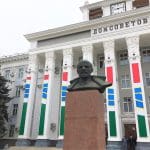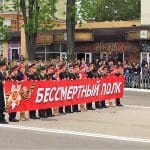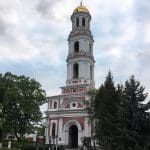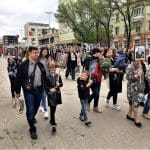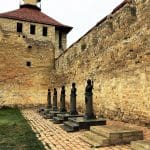On his trip to Moldova, Mark Bibby Jackson visits the Victory Day parade in Transnistria, meeting a hospitable people at odds with the rest of Europe, yet clinging on to a strong sense of the past.
A little girl stands beside the assembled mass in her pink coat. Looking as though she doesn’t really want to be here, she sways freely out of time with the Red Flag playing in the distance. Beside her, men and women hold pictures of lost ones – some who fell in World War II, others in more recent conflicts, such as Afghanistan and Chechnya. In the middle of the stationary parade, soldiers twirl their weapons in a carefully choreographed display.
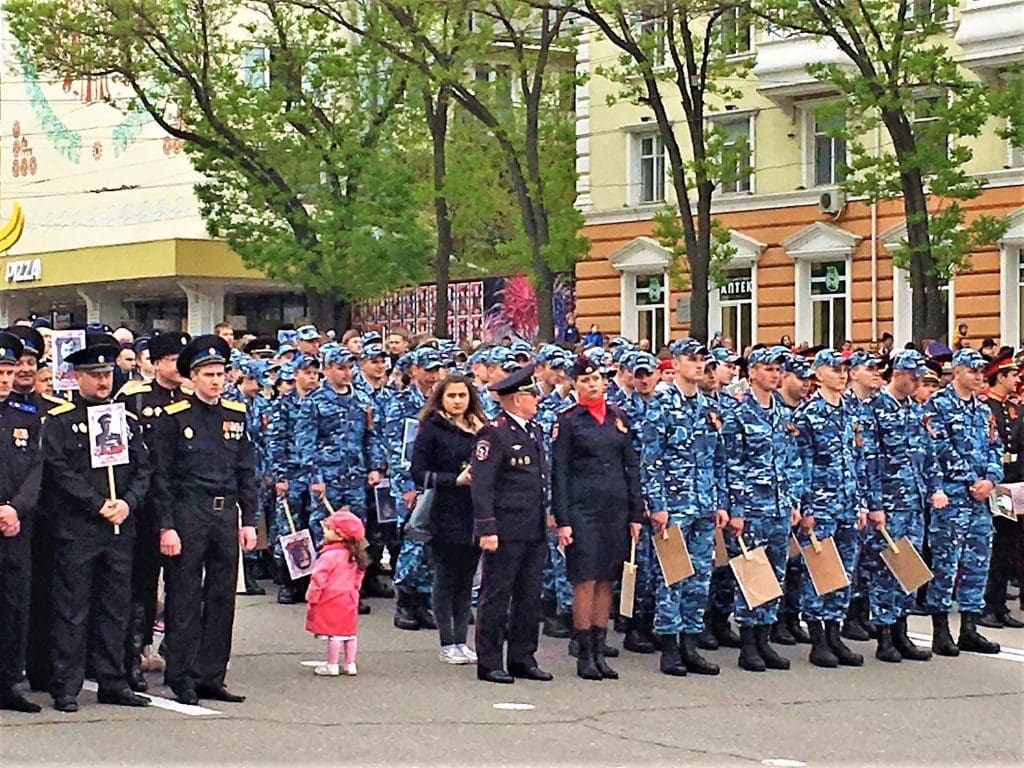
In front of the girl, former soldiers stand patiently waiting for the signal to march. It seems to take an eternity, but there again the people of Transnistria are accustomed to waiting. Eventually, the pirouetting soldiers stop their audition for Strictly Military, and the procession commences.
Transnistria: a Nation in Name Only
Transnistria, or the Pridnestrovian Moldavian Republic to give its full title, is a country lost in time. Just like the Duchy of Grand Fenwick in The Mouse That Roared it seems to have no place in modern Europe. I half expect to see Peter Sellers inspecting the troops.
Technically it’s not even a country, rather a narrow strip of land across the river Dniester claiming an independence from Moldova unrecognised by the UN or any other state, not even its beloved Russia. Only the parallel states of Abkhazia, South Ossetia and Artsakh acknowledge its existence; a brotherhood of anonymity.
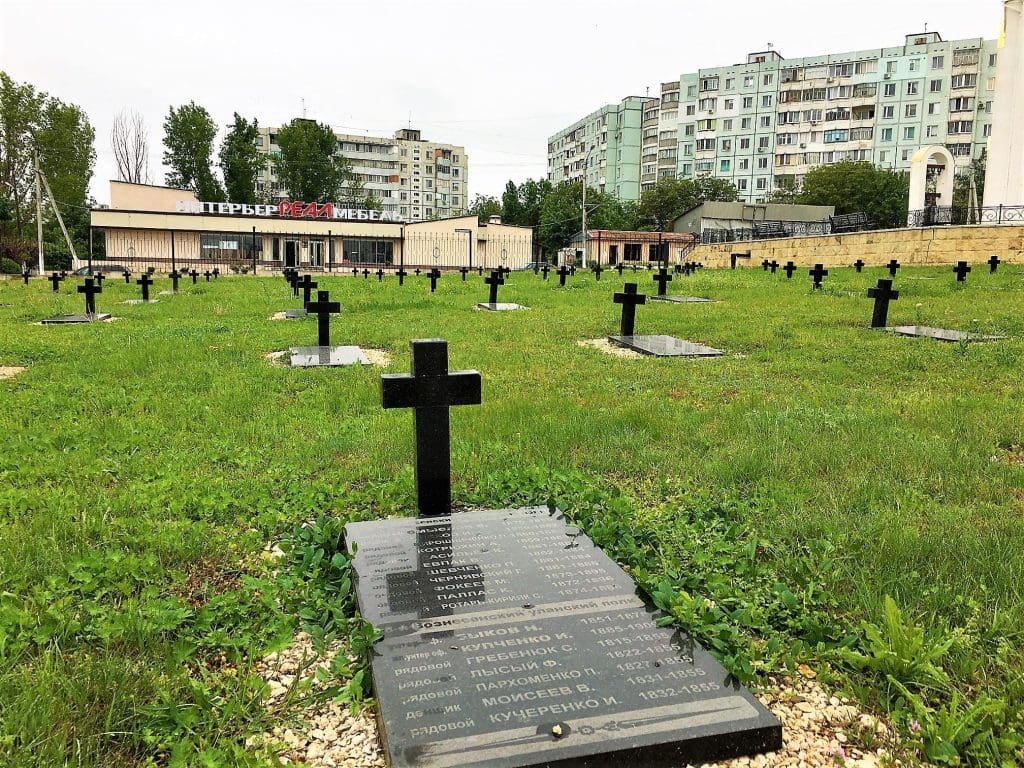
In March 1992, tension between Transnistria and Moldova exploded into a military conflict that lasted three months and cost some 3-4,000 lives. Now, you feel the military presence is more for show than threat, although the previous day we did cross the ‘border’ that separates both sides of the nation, collecting a stamp on a piece of paper permitting us to stay.
As we crossed the fragile line, all signage changed from Roman to Cyrillic script as if to emphasise the point that we had entered another country. I catch my first sight of the Transnistrian flag, apparently the only one still with the hammer and sickle on it. We then travel to the town of Bender to see the impressive 16th Century Bendery Fortress built by the Ottomans, and a sturgeon factory before lunch in the village of Tirinauca.
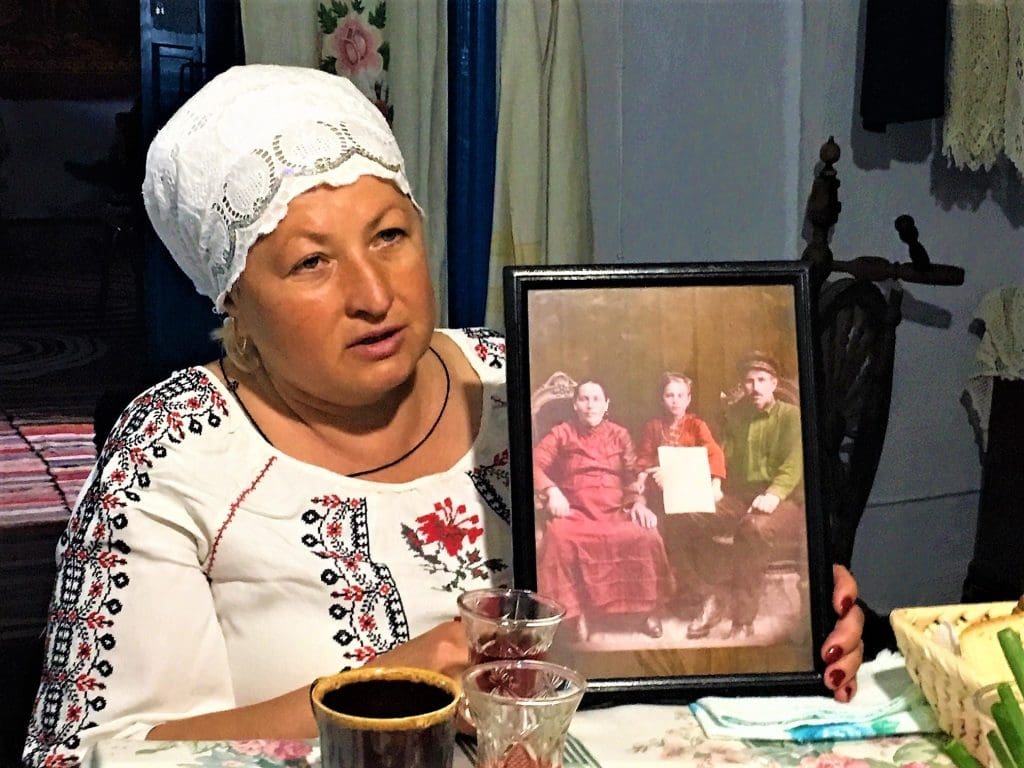
Here we are treated to a hearty feast by our host Angelica, herself dressed in traditional clothing as she regales us with tales of her childhood. She passes around a photograph of her grandmother pregnant with her mother taken in the 1930s, shortly before the war broke out and the German tanks rolled in. Life has never been easy in this part of the world. The house, Casa Karaman, is preserved as a testament to past traditions, with embroidery handed down to Angelica from her grandmother much in evidence.
A Brandy with a Surprise
After lunch, we arrive in the capital Tiraspol for a short walking tour taking in statues of Catherine the Great, Lenin and Suvuroy, the Russian general who liberated the nation from the Ottomans. Our tour concludes at the appropriately named Hotel Russia, which is conveniently placed next to Kvint distillery.
Being out-of-kilter with the rest of Europe is not the only thing that Transnistria shares with the Duchy of Grand Fenwick. In The Mouse That Roared, Fenwick declares war on the US, due to the impact that cheap US wine is having on the duchy’s sole export, the Pinot Grand Fenwick wine. Fortunately, Transnistria is less dependent upon the grape, although there are claims that gun-running and contraband are key components of its shadow economy.
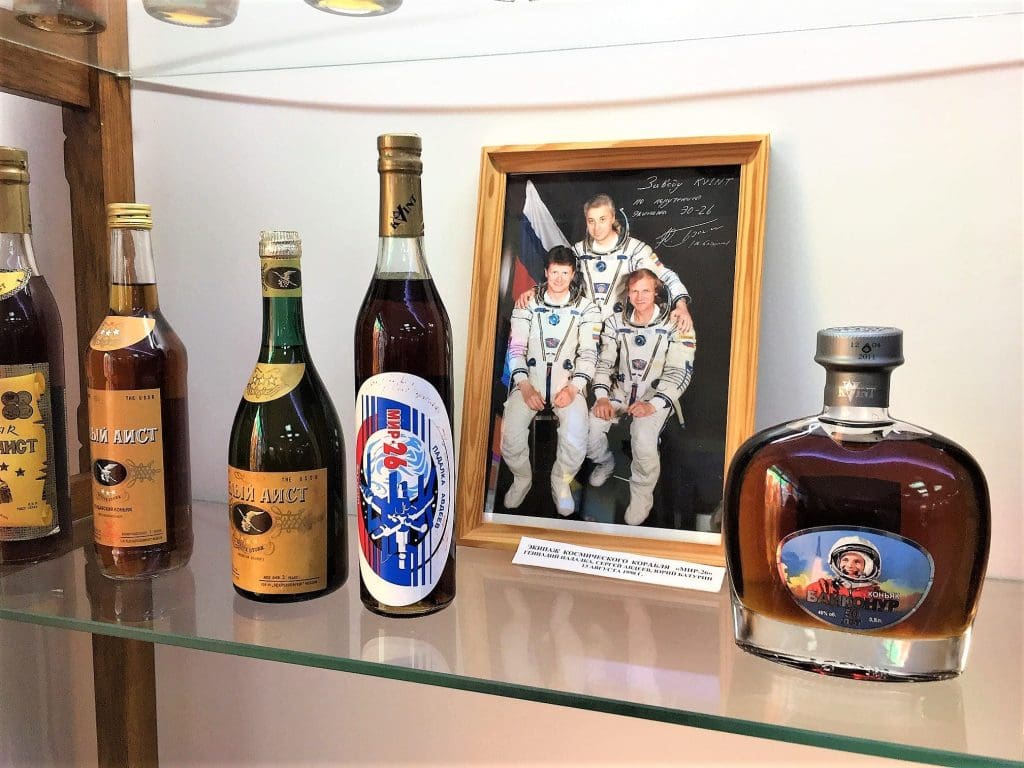
Kvint has produced brandy since the 1830s. Prior to the 1960s, the Communist Party placed strict rules on the types of bottles and labelling Kvint could use, but now restrictions have relaxed. We are shown the only bottle of brandy that has been to space and returned – apparently a case was sent with a Soyuz crew in 1998, but only one made it back.
Kvint’s most famous brandy is called ‘Surprise’. A bottle was sent to the 22nd Congress of the Communist Party in 1961. The leaders were surprised to learn that so good a brandy could have come from Moldova, and the name stuck.
Our tour concludes with a tasting of various vintages of the Kvint Devin brandy from five to 10 years of age, skipping the seven-year-old, which really just proved how little I know about brandy.
A Monk with a Habit
By now, I am beginning to become accustomed to the eclectic nature of this non-state that pined for Soviet times. However, I am still somewhat taken aback by what awaits me next.
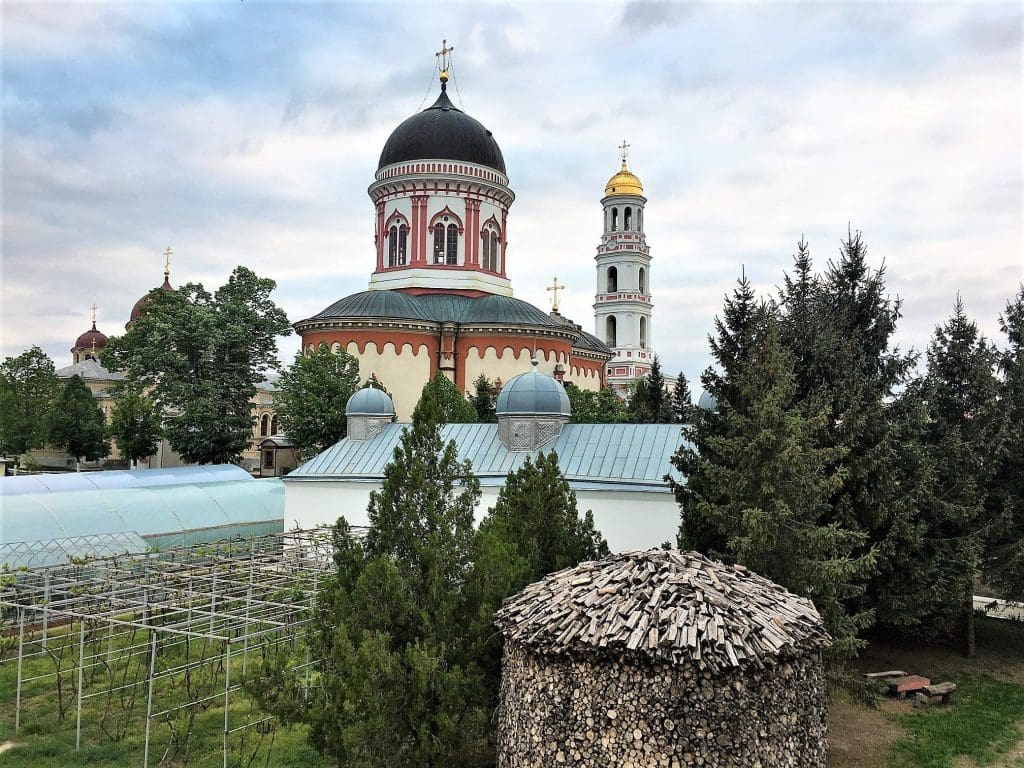
I had learned in Moldova how the Soviet authorities had suppressed the country’s monasteries and cathedrals, turning them into secular buildings, such as art galleries. Built some 155 years ago, Noul Neamt was closed in 1962, just like all the other monasteries in the country, to reopen in 1989.
The bell tower is the highest in Moldova, and the acoustics in the main church are quite spectacular. This, our host Paisie, the abbot of the monastery, willingly demonstrates to us before proving his linguistic ability by singing a short ditty wishing us a long life in more than 20 languages over dinner, while we sample the wine made at the monastery.
Even a devout atheist such as myself could not fail to be impressed by the abbot’s hospitality, especially as we are then led by one of his brother monks to the monastery’s cellars where we are given a tour that consists of much sampling and little touring, just as I like it.
Victory Parade
Surprisingly, it is with a clear head that I awake the following day – clearly the wine was blessed. It’s only a short walk to the Victory Day parade that celebrates the conquering of the Nazis in World War II. Along the way, we pass the colourful House of Soviets, where the Parliament sits, with its statue of Lenin proudly standing outside, not hidden in some remote park or removed altogether.
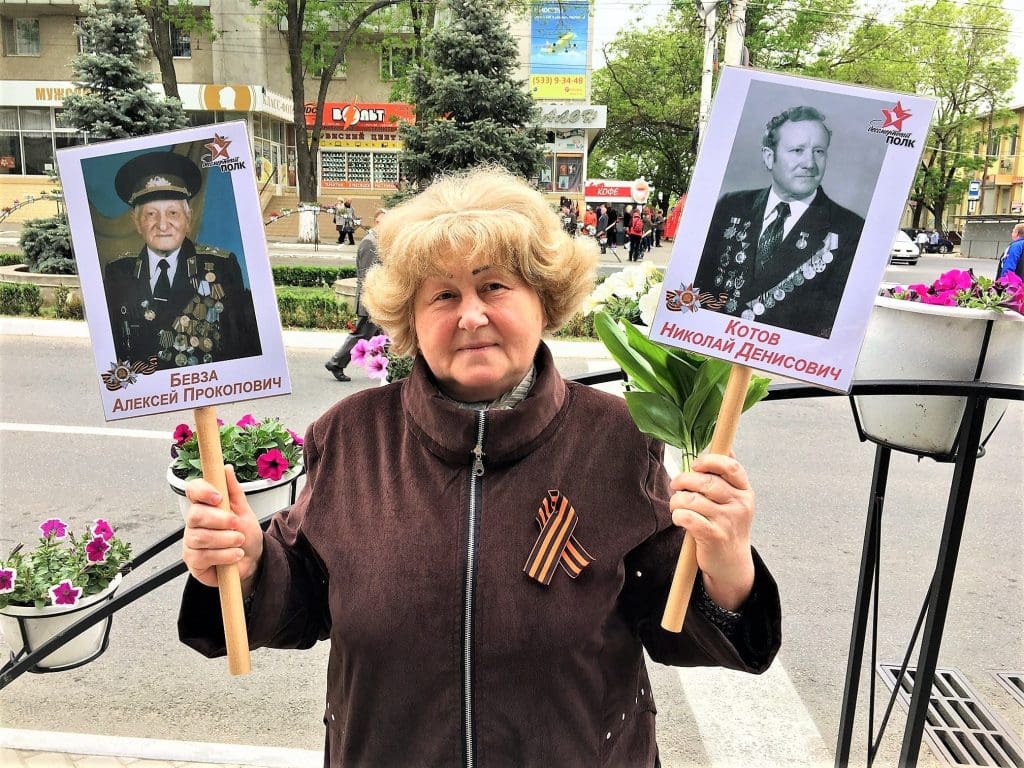
Despite its slow start, I confess to being deeply moved by the parade. Perhaps, it is fortunate I speak no Russian so not to understand the nationalist sentiments being expressed on the loudspeakers, but the raw emotion of the men and women needs no translation. It reminds me to an extent of my recent trip to the D-Day Story in Portsmouth and the wonderful Overlord Embroidery designed by Sandra Lawrence, which commemorates another side to that battle against Fascism waged 75 years ago today.
Above all the image of one woman sticks in my memory. Tamara stands with two images of dead relatives in her hands. Like Angelica and Paisie, her present is firmly rooted in the past. What the future holds for her, just like with the rest of Europe, seems most uncertain. But at least now she knows what she is doing, paying her respects for those who lost their lives fighting an ideology that seems once more to be on the rise.
Explore Moldova Holiday
Explore’s five-day Moldova Short Break (May to October 2019) small-group trip costs from £819pp, and includes flights, accommodation, three dinners, transfers and a tour leader. Various departures from London Luton and Stansted airports.
